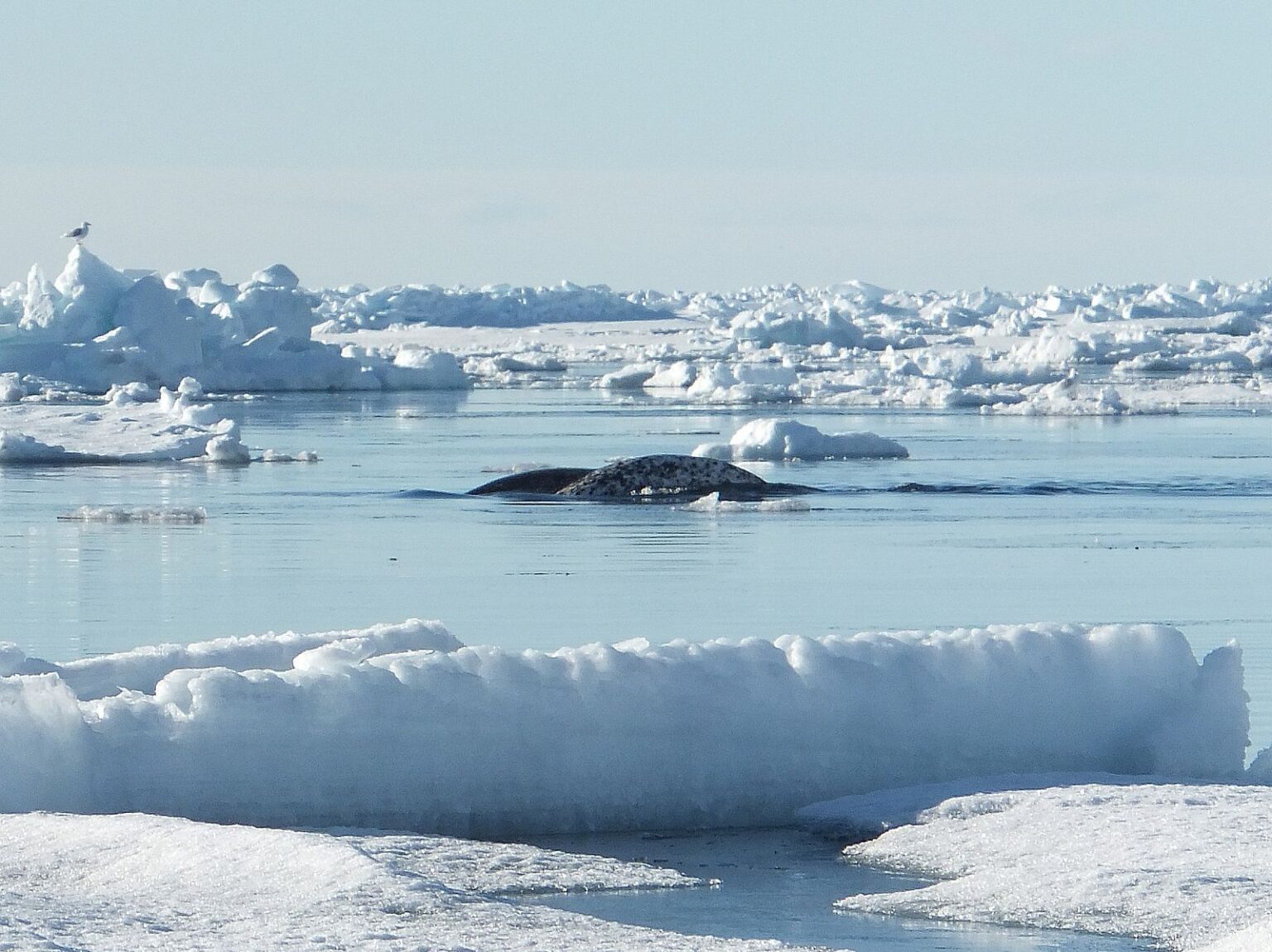Seismic airguns are being fired underwater off the east coast of Greenland to find new oil reserves in the Arctic Ocean. But this activity “could seriously injure” whales and other marine life, warns a new report conducted by Marine Conservation Research and commissioned by Greenpeace Nordic.
The oil industry is increasingly looking towards the region, as oil and gas reserves become more accessible as climate change causes large areas of Arctic sea ice to melt.
Global oil companies including BP, Chevron and Shell all own drilling rights in the Greenland Sea and are the likely customers for the data gathered by the Norwegian geophysical company conducting the seismic testing, TGS-Nopec.
Wildlife Impacts
However, this seismic operation is taking place adjacent to ‘closed areas’ and overlaps with ‘areas of concern’ that have been appointed by the Greenlandic authorities, for the protection of narwhals, walruses and a critically endangered population of bowhead whales.
According to Greenpeace, the airguns emit 259-decibel blasts towards the seabed in order to find possible oil reservoirs. Above water, this sound intensity would be perceived by humans as approximately eight times louder than a jet engine taking off.
As the report details, seismic testing can damage marine mammals’ hearing and their ability to communicate as well as disrupting behaviour, feeding and migration patterns. This is because these mammals, and whales in particular, rely on sound to navigate, communicate and search for food.
There are also increasing indications that seismic testing can cause reproductive failure and increase the risk of strandings and ice entrapments.
Seismic Activity
Seismic testing has been conducted every summer in Greenland since 2011. And in April, TGS announced it had also begun doing seismic testing of the Barents Sea. As DeSmog UK has reported, Norway is leading the charge in Europe for Arctic oil development as production at its first offshore oilfield is set to begin “in a few weeks”.
The report’s author, Dr Oliver Boisseau, a senior research scientist at Marine Conservation Research, said: “It is alarming to consider the vast amount of seismic activity being planned and conducted in the High Arctic, given the fragile nature of the ecosystem and the potential for disturbance and harm to whales.
“It seems justified to urge for extreme caution given both the lack of data and the limited understanding of the short and long term impact of seismic noise on sensitive Arctic species, especially the narwhal.”
As Boisseau highlights, the narwhal is particularly vulnerable to seismic testing. While some whales react to seismic sounds tens of kilometres away by trying to avoid them, narwhals are unique in their tendency to “freeze and sink” in response to a threat.
The report explains: “This means narwhals are more susceptible to damage from airgun blasts as they are not inclined to avoid regions impacted by noise.”
Narwhals are also more susceptible to becoming trapped in the ice in response to blasts from seismic vessels. Between 2008 and 2010 three entrapments of narwhals were reported coinciding with seismic activities in Greenland during the summer period. The narwhals delayed their autumn migration from Baffin Bay, leading to them travelling while winter sea ice started forming, causing thousands of narwhals to become entrapped in the ice and die.
This was the first time narwhal entrapments had ever been reported in this area.
Research Gap
However, the Marine Conservation Research report stresses that there is a “massive research gap” in this field. To date, no strandings of Arctic whale species have been reported, “which could mean they have not occurred or that they have not been reported due to the remoteness and extremely thin population density,” the report explains.
“Based on available data, the authors ‘urge for extreme caution’ amongst decision makers before allowing seismic activity in the Arctic,” the report argues. “From the research at hand, it is clear that noise from seismic activity impacts whales.”
Arctic campaigner Sune Scheller, on-board Greenpeace ship Arctic Sunrise headed to Greenland, said: “Seismic blasting in icy waters is just one of the horrific practices the oil industry is doing in the Arctic, firing airguns into this important and beautiful ocean.
“Shell and other oil companies are hoping the world won’t know that seismic blasting exists, even less notice the danger it poses to endangered whales and other marine life, but we’re here to expose this madness and keep eyes and ears on a harmful operation.”
Photo: Greenland Travel via Flickr
Subscribe to our newsletter
Stay up to date with DeSmog news and alerts







